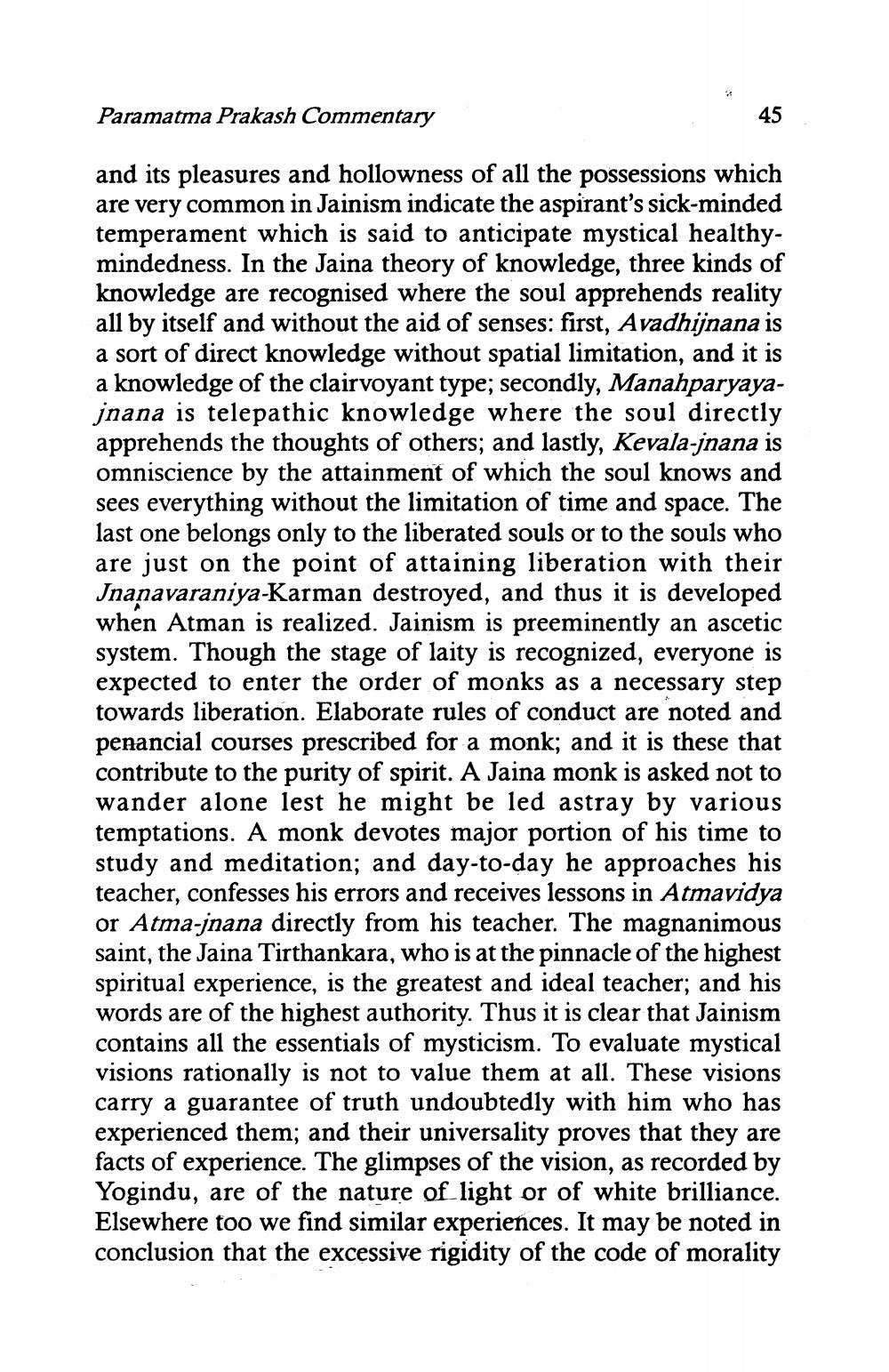________________
Paramatma Prakash Commentary
and its pleasures and hollowness of all the possessions which are very common in Jainism indicate the aspirant's sick-minded temperament which is said to anticipate mystical healthymindedness. In the Jaina theory of knowledge, three kinds of knowledge are recognised where the soul apprehends reality all by itself and without the aid of senses: first, Avadhijnana is a sort of direct knowledge without spatial limitation, and it is a knowledge of the clairvoyant type; secondly, Manahparyayajnana is telepathic knowledge where the soul directly apprehends the thoughts of others; and lastly, Kevala-jnana is omniscience by the attainment of which the soul knows and sees everything without the limitation of time and space. The last one belongs only to the liberated souls or to the souls who are just on the point of attaining liberation with their Jnanavaraniya-Karman destroyed, and thus it is developed when Atman is realized. Jainism is preeminently an ascetic system. Though the stage of laity is recognized, everyone is expected to enter the order of monks as a necessary step towards liberation. Elaborate rules of conduct are noted and penancial courses prescribed for a monk; and it is these that contribute to the purity of spirit. A Jaina monk is asked not to wander alone lest he might be led astray by various temptations. A monk devotes major portion of his time to study and meditation; and day-to-day he approaches his teacher, confesses his errors and receives lessons in Atmavidya or Atma-jnana directly from his teacher. The magnanimous saint, the Jaina Tirthankara, who is at the pinnacle of the highest spiritual experience, is the greatest and ideal teacher; and his words are of the highest authority. Thus it is clear that Jainism contains all the essentials of mysticism. To evaluate mystical visions rationally is not to value them at all. These visions carry a guarantee of truth undoubtedly with him who has experienced them; and their universality proves that they are facts of experience. The glimpses of the vision, as recorded by Yogindu, are of the nature of light or of white brilliance. Elsewhere too we find similar experiences. It may be noted in conclusion that the excessive rigidity of the code of morality
45




